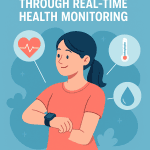This article is for informational purposes only and is not a substitute for professional medical advice. Always consult a healthcare provider for concerns about sleep disorders.
Understanding Sleep Disorders
Sleep is essential for our overall health, yet millions of people struggle with sleep disorders that disrupt their nightly rest. From insomnia to sleep apnea, these conditions can affect not just our sleep but also our daily functioning. Understanding the causes and available treatments is crucial for anyone looking to improve their sleep quality.
What Are Sleep Disorders?
Sleep disorders encompass a range of conditions that impair your ability to sleep well on a regular basis. They can affect how long you sleep, how well you sleep, or how much you feel rested when you wake up. Common sleep disorders include:
- Insomnia: Difficulty falling asleep or staying asleep.
- Sleep Apnea: Breathing interruptions during sleep.
- Restless Legs Syndrome (RLS): An uncontrollable urge to move your legs.
- Narcolepsy: Excessive daytime sleepiness and sudden sleep attacks.
Causes of Sleep Disorders
Understanding the underlying causes of sleep disorders is essential for effective treatment. Here are some common factors:
1. Psychological Factors
Conditions such as anxiety, depression, and stress can significantly impact sleep quality. For instance, someone experiencing chronic anxiety may find it difficult to relax enough to fall asleep. The brain’s heightened state of alertness can lead to a cycle of sleeplessness, where the individual becomes increasingly anxious about not sleeping. This relationship can create a feedback loop that perpetuates the problem, making it crucial to address both the psychological and sleep issues concurrently.
2. Medical Conditions
Various health issues can contribute to sleep disorders. For example, chronic pain conditions like arthritis or fibromyalgia can make it hard to find a comfortable sleeping position. Additionally, conditions such as asthma or gastroesophageal reflux disease (GERD) can lead to frequent awakenings, further disrupting sleep. Other disorders, like heart disease or diabetes, can also impact sleep patterns, highlighting the importance of a comprehensive health evaluation.
3. Lifestyle Choices
Habits such as excessive caffeine consumption, irregular sleep schedules, and lack of physical activity can also disrupt sleep. For instance, a person who drinks coffee late in the day may struggle to fall asleep at night. Furthermore, engaging in stimulating activities close to bedtime, such as intense exercise or screen time, can hinder the body’s natural wind-down process. Making conscious lifestyle adjustments can significantly enhance sleep quality.
4. Environmental Factors
Noise, light, and uncomfortable temperatures can hinder sleep. A bedroom that is too bright or noisy can prevent someone from reaching deep sleep stages. Creating a sleep-conducive environment is essential; for example, using blackout curtains and white noise machines can help mitigate these disturbances. Additionally, the use of comfortable bedding and maintaining an optimal room temperature (between 60-67°F) can further promote restful sleep.
Symptoms of Sleep Disorders
Identifying the symptoms of sleep disorders can help you seek appropriate help. Common signs include:
- Difficulty falling asleep or staying asleep.
- Daytime fatigue or sleepiness.
- Frequent snoring or gasping for air during sleep.
- Irritability or mood swings.
- Difficulty concentrating.
Treatments for Sleep Disorders
Fortunately, there are various treatment options available for sleep disorders. The best approach often depends on the specific disorder and its underlying causes.
1. Cognitive Behavioral Therapy for Insomnia (CBT-I)
CBT-I is a structured program that helps individuals identify and replace thoughts and behaviors that cause or worsen sleep problems. Studies show that CBT-I can be as effective as medication for treating insomnia (UpToDate). This therapy often includes techniques such as sleep restriction, stimulus control, and relaxation training. For example, patients might learn to associate their bed with sleep rather than wakefulness, breaking the cycle of insomnia.
2. Medications
In some cases, doctors may prescribe sleep medications. These can include benzodiazepines or non-benzodiazepine sleep aids. However, it’s important to use these medications under medical supervision due to potential side effects and dependency issues. For example, long-term use can lead to tolerance, where increasing doses are needed to achieve the same effect. It’s also crucial to consider that medications may not address the root cause of sleep issues.
3. Lifestyle Changes
Adopting healthy sleep habits can significantly improve sleep quality. Here are some strategies:
- Establish a Sleep Routine: Go to bed and wake up at the same time every day, even on weekends.
- Create a Comfortable Sleep Environment: Ensure your bedroom is dark, quiet, and cool. Consider using earplugs or a white noise machine if necessary.
- Limit Screen Time: Avoid screens at least an hour before bedtime to reduce blue light exposure, which can interfere with melatonin production.
- Exercise Regularly: Engage in physical activity during the day, but avoid vigorous exercise close to bedtime, as it can be stimulating.
- Watch Your Diet: Limit caffeine and heavy meals before bedtime. Instead, consider a light snack if you’re hungry, as certain foods like bananas or almonds can promote sleep.
4. Medical Devices
For conditions like sleep apnea, a Continuous Positive Airway Pressure (CPAP) machine may be recommended to keep airways open during sleep. This device delivers a steady stream of air through a mask, preventing airway collapse and ensuring uninterrupted breathing. Proper fitting and adherence to CPAP therapy can greatly enhance sleep quality for those with obstructive sleep apnea.
Patient Vignette
Consider Sarah, a 35-year-old graphic designer who struggled with insomnia for over a year. After months of tossing and turning, she decided to consult a sleep specialist. Through CBT-I, Sarah learned to identify her stress triggers and developed a bedtime routine that included reading and relaxation techniques. Within weeks, she experienced significant improvements in her sleep quality and daytime alertness. Sarah’s journey illustrates how understanding the root causes of sleep issues and implementing structured interventions can lead to meaningful change.
Myth vs. Fact
| Myth | Fact |
|---|---|
| Sleep disorders are just a normal part of aging. | While sleep patterns can change with age, significant sleep issues are not normal and should be addressed. Many older adults have untreated sleep disorders that can be improved. |
| More sleep is always better. | Quality of sleep is more important than quantity; too much sleep can also indicate underlying health issues. It’s essential to focus on restorative sleep rather than just the number of hours. |
| Sleep medications are the best solution for sleep problems. | While medications can help, they are often most effective when combined with behavioral therapies. Long-term reliance on medications can lead to complications. |
FAQs about Sleep Disorders
What are the most common sleep disorders?
The most common sleep disorders include insomnia, sleep apnea, restless legs syndrome, and narcolepsy.
How can I tell if I have a sleep disorder?
Symptoms such as persistent difficulty sleeping, daytime fatigue, or mood changes may indicate a sleep disorder. Consulting a healthcare provider can help with diagnosis.
Are sleep disorders treatable?
Yes, many sleep disorders are treatable through lifestyle changes, therapy, medications, or a combination of these approaches. Early intervention can lead to better outcomes.
When should I see a doctor about my sleep problems?
If your sleep issues persist for more than a few weeks or significantly impact your daily life, it’s important to seek medical advice. A healthcare provider can help identify potential underlying causes.
Can lifestyle changes really improve my sleep?
Absolutely! Simple changes like establishing a sleep routine, creating a calming environment, and managing stress can greatly enhance sleep quality. Even small adjustments can make a significant difference.
Are there any specific foods that can help with sleep?
Yes, certain foods can promote sleep. Foods rich in magnesium, such as spinach and almonds, and those containing tryptophan, like turkey and dairy, can help enhance sleep quality. Additionally, complex carbohydrates, such as whole grains, can facilitate the absorption of tryptophan.
What role does melatonin play in sleep?
Melatonin is a hormone that regulates sleep-wake cycles. Supplementing with melatonin can be beneficial for some individuals, particularly for those with circadian rhythm disorders or who have difficulty falling asleep. However, it’s best to consult a healthcare provider before starting any supplementation.
Key Takeaways
- Sleep disorders affect millions and can significantly impact daily life.
- Common disorders include insomnia, sleep apnea, and restless legs syndrome.
- Effective treatments range from cognitive behavioral therapy to lifestyle changes.
- Creating a sleep-friendly environment is crucial for better rest.
- Consulting a healthcare provider is essential for persistent sleep issues.
References
- National Sleep Foundation. (2021). Sleep Disorders. Retrieved from https://www.sleepfoundation.org/sleep-disorders
- UpToDate. (2023). Cognitive Behavioral Therapy for Insomnia. Retrieved from https://www.uptodate.com/contents/cognitive-behavioral-therapy-for-insomnia
- World Health Organization. (2022). Sleep Disorders. Retrieved from https://www.who.int/news-room/fact-sheets/detail/sleep-disorders
- Centers for Disease Control and Prevention. (2023). Sleep and Sleep Disorders. Retrieved from https://www.cdc.gov/sleep/index.html
- NHS. (2022). Sleep Disorders. Retrieved from https://www.nhs.uk/conditions/sleep-disorders/
- PubMed. (2023). Overview of Sleep Disorders. Retrieved from https://pubmed.ncbi.nlm.nih.gov/
- American Academy of Sleep Medicine. (2022). Sleep Disorders. Retrieved from https://aasm.org/clinical_resources/sleep-disorders/








Post a comment